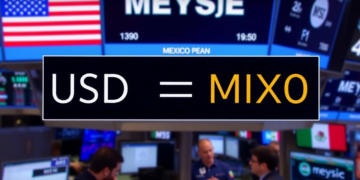Selecting the right venue is arguably the most critical decision when planning any corporate event. The venue sets the tone, impacts the attendee experience, and directly influences the success of your gathering, whether it’s a small workshop, a large conference, a gala dinner, or a product launch.
A well-chosen space can elevate your brand, facilitate networking, and ensure seamless execution, while a mismatched venue can lead to logistical headaches and a less-than-stellar impression.
Navigating the myriad options requires careful consideration of several key factors. This article will outline six essential elements to evaluate when looking for the ideal corporate event venue.
Location and Accessibility
The venue’s location is paramount when selecting a corporate event venue. Consider its proximity to airports, major transportation hubs, and accommodations for out-of-town attendees. Easy accessibility is key for maximizing attendance and minimizing travel stress.
Evaluate public transportation options, parking availability, and potential traffic congestion. A conveniently located venue enhances the overall attendee experience and demonstrates consideration for their time and comfort.
Capacity and Layout Flexibility
Matching the venue’s capacity to your estimated guest count is crucial for both comfort and atmosphere. An overly large space can feel sparse and impersonal, while a cramped one can lead to discomfort and hinder networking. Beyond sheer numbers, assess the layout flexibility.
Can the space be configured to support different aspects of your event, such as a main presentation area, breakout rooms for workshops, a dining section, or a reception zone? Flexible layouts are essential for dynamic corporate events.
Available Technology and A/V Capabilities
In today’s corporate landscape, advanced technology is often a necessity for seamless presentations, virtual participation, and engaging content.
Inquire about the venue’s in-house audiovisual (A/V) capabilities, including screens, projectors, sound systems, and reliable high-speed internet access. Confirm if technical support is provided.
A venue with modern, integrated technology can save you significant time, effort, and external rental costs, ensuring your presentations and communications run smoothly.
Services and Staff Support
The level of service and staff support offered by a venue can make or break an event. Inquire about dedicated event coordinators, on-site technical support, and hospitality staff. Does the venue offer in-house catering, or do they have preferred catering partners?
Understanding the range of services provided – from setup and teardown to security and cleaning – will help you determine how much external coordination will be required. Excellent service ensures a smooth and stress-free experience for organizers and attendees alike.
Ambiance and Branding Opportunities
The venue’s existing ambiance should align with your corporate brand and the event’s objectives. Does it convey professionalism, innovation, luxury, or a more relaxed atmosphere? Consider the architectural style, decor, and overall feel of the space. Importantly, assess the opportunities for branding.
Can you easily incorporate your company’s logo, colors, and promotional materials? A venue that naturally complements your brand will enhance your message and leave a stronger impression on attendees.
Budget and Contract Terms
Finally, a comprehensive understanding of the venue’s pricing structure and contract terms is vital. Obtain a detailed breakdown of all costs, including rental fees, A/V equipment, catering minimums, service charges, and any potential hidden fees.
Clarify cancellation policies, payment schedules, and liability clauses. Don’t hesitate to negotiate where appropriate.
A clear and transparent contract protects your company’s interests and ensures that your chosen venue provides excellent value within your allocated budget for the corporate event.

































